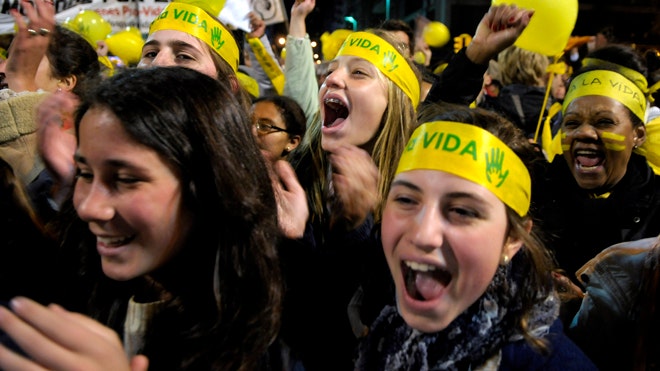By Brendan Oliver Bergh
Impunity Watch Reporter, South America
CARACAS, Venezuela – The political climate heat turned violent in Venezuela as three political activists were shot and killed. Supports of the Presidential challenger Henrique Capriles, political opposition leaders Omar Mereno and Antonio Avila were pronounced dead at the scene.

According to CNN, the caravan the activist leaders had been attached to had been stopped by a blockade. The opposition leaders Mereno and Availa exited the caravan, requesting permission to pass, when a gunmen opened fire upon them. Two other people were wounded. One the wounded, Hector Rojas latter succumbed to his wounds at a nearby hospital.
Survivors indicated that the blockade had been formed by a group of militant Chavez supporters.
Each of the dead were leaders of smaller groups that had grouped together to form the opposition coalition Democratic Unity Table (MUD). Each group has come together to challenge current President Hugo Chaves. The incident occurred shortly after a rally for Presidential Hopeful Henrique Capriles. The rally was held in Caracas and was aimed to be the final push in the Coalition leaders’ bid for the presidency.
While this is the first incident of actual violence and homicide, the political battle for Venezuela has been fraught with fraud. Both sides have accused each other of fraud and misconduct. Chavez supporters claim that the opposition is intending to create a chaotic conflict that will destabilize the country. This would slow anarchy, encourage a coup, and allow the old bourgeois to return to power. They continue that these attempts for a “coup” are looking to ignore the legitimacy of Venezuelan institutions and among his despair at the loss of the elections.
Henrique Capriles believes that he is the first real opponent Hugo Chavez’s cult of personality, and that the Socialist dream he is presenting has led to a widespread meltdown of the country’s wealth, social institutions, and public trust.
Hugo Chavez, the current President of Venezuela, is seeking reelection for a third term on Sunday October 7. According to Chavez, “I have not cheated or failed” as he perpetrates that a vote against him would be akin to revoking all the social changes that Venezuela has seen in the past ten years. He has called on his supporters to avoid provocation and retribution. He continued with his message that “Not with violence that we will face off. It is with votes… with ideas.”
Within hours of the shooting six people were arrested for their alleged involvement in the crime. Three women and three men have been arrested including the supposed perpetrator of the fatal shooting.
For further information, please see:
ABC – They Stop The Perpetrator Of The Murder Of Two Politicians In Venezuela – 1 October 2012
Clarin – Opposition Mass Rally In Caracas – 30 September 2012
El Tiempo – The Lines Of Hugo – 30 September 2012
El Universal – Chaves: “I have not cheated or I have failed” – 30 September 2012
Talcual Digital – A Third Dead – 30 September 2012
The BBC – 2 Killed As Venezuelan Campaign Turns Violent – 29 September 2012
Deadspin – Hugo Chavez’ Opposition In Venezuela Lampoons Him As An Egomaniacal Pitcher – 29 September 2012



